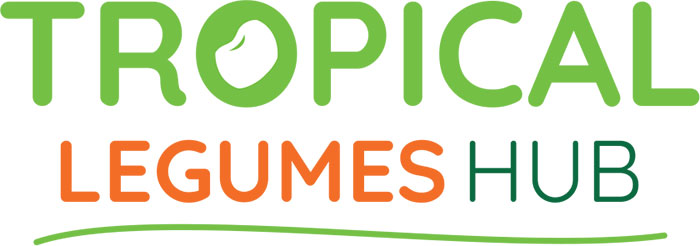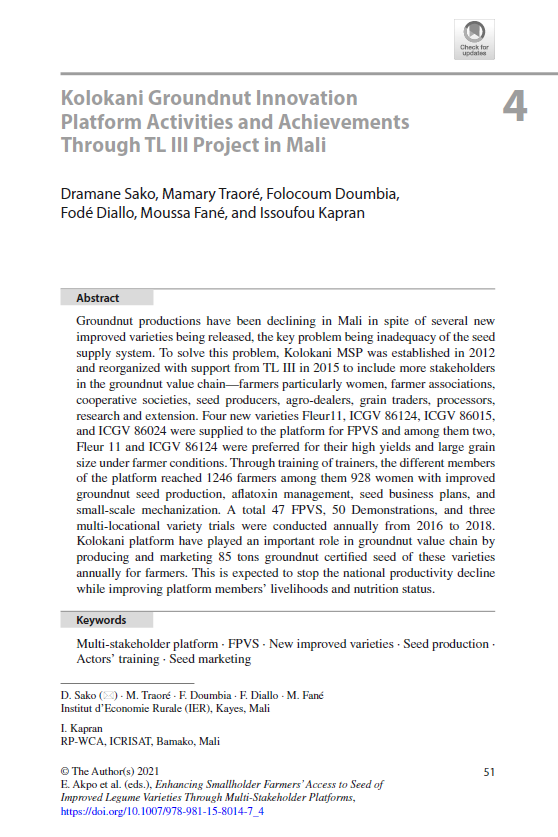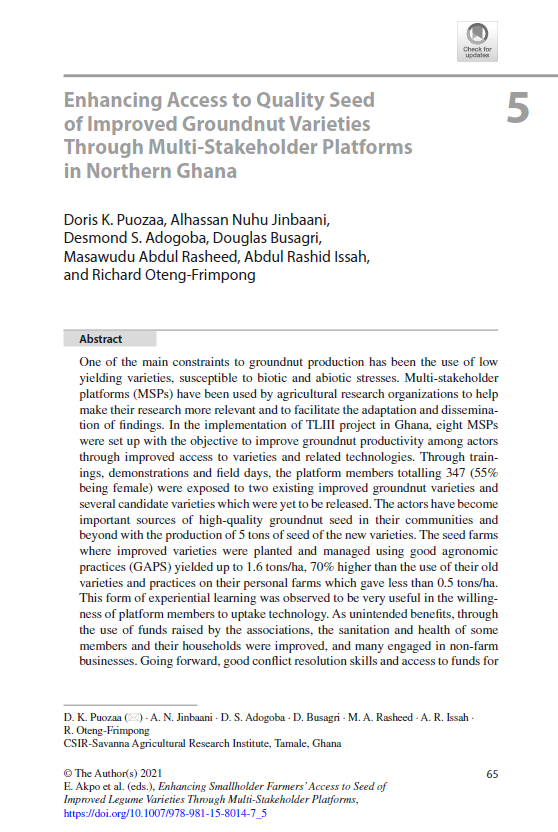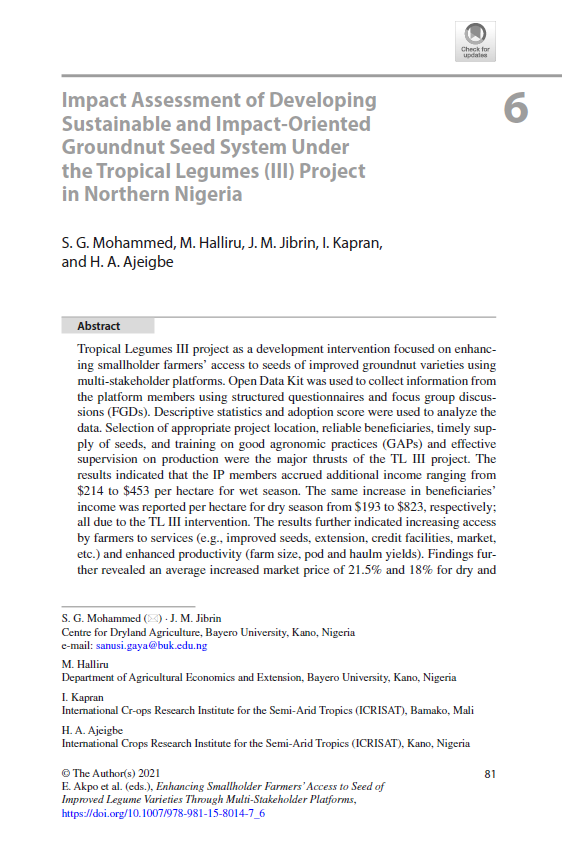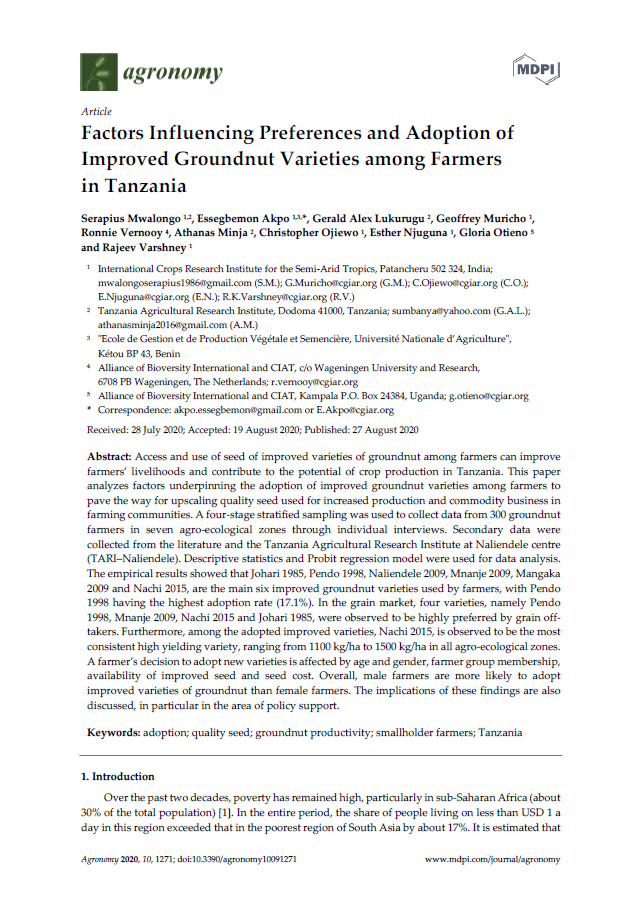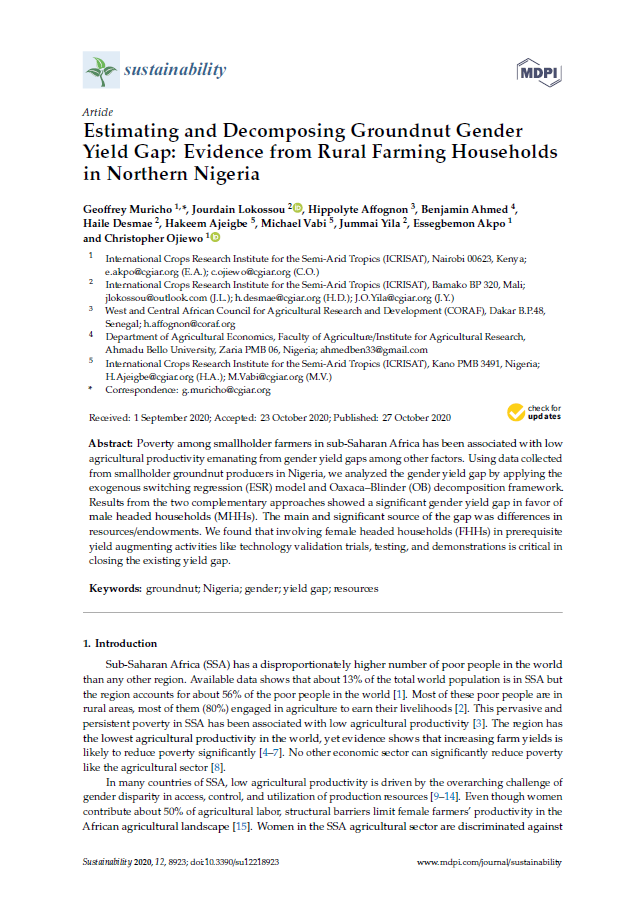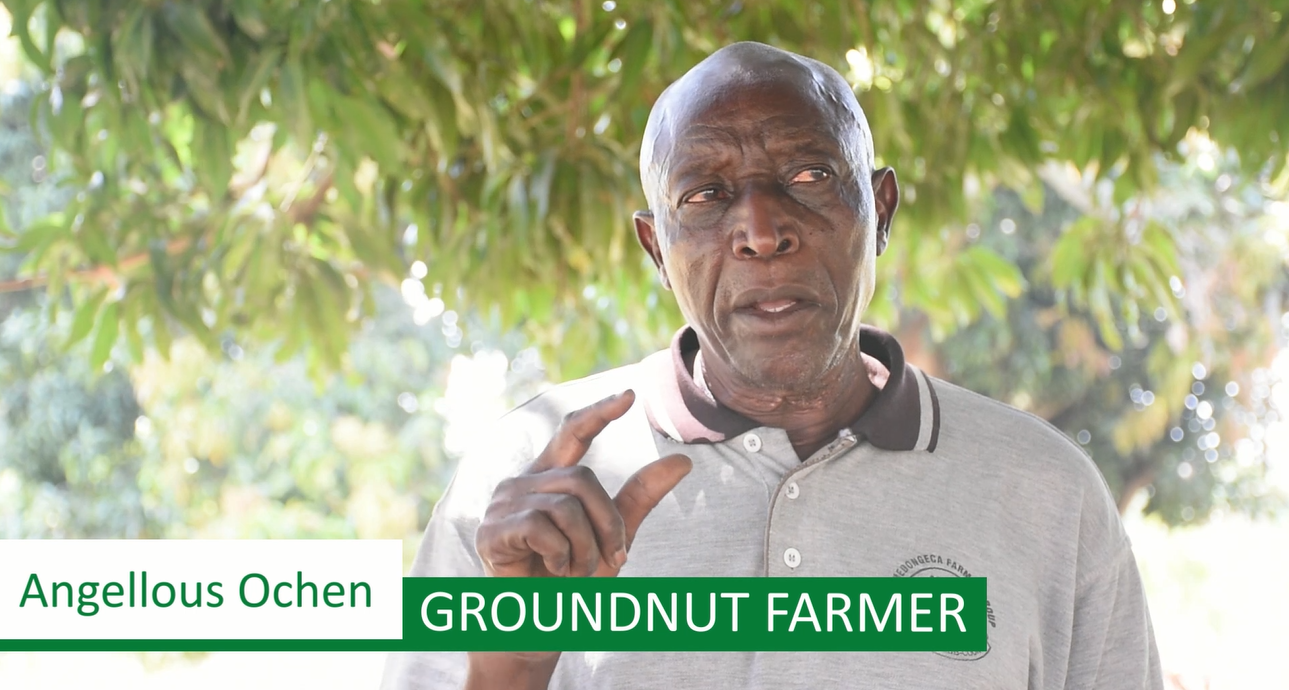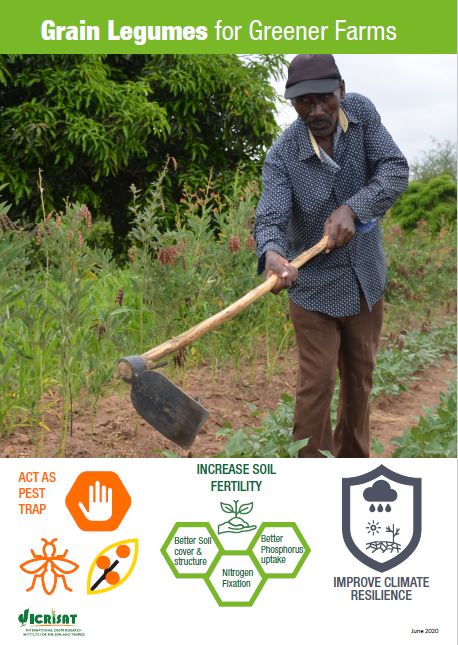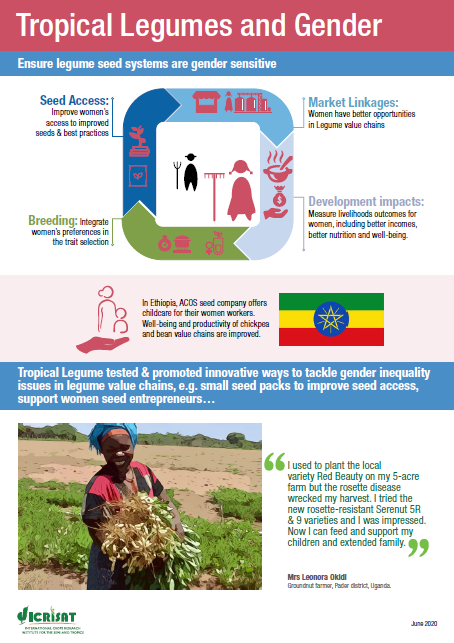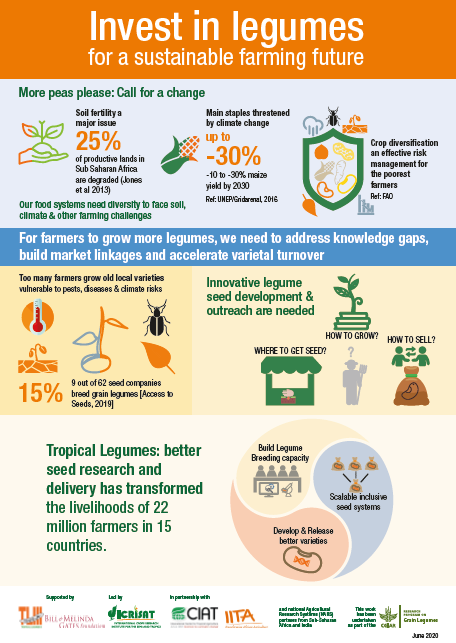Enhancing Smallholder Farmers’ Access to Seed of Improved Legume Varieties Through Multi-stakeholder Platforms (Kolokani Groundnut Innovation Platform Activities and Achievements Through TL III Project in Mali: Chapter 4 of 14)
Chapter 4 of a book that shares the experiences of TL III in facilitating smallholder farmers’ access to seed of improved legume varieties through innovation platforms in seven developing countries for the past 12 years.
Project: TLIII
File type: PDF (322.34 KB)
Enhancing Smallholder Farmers’ Access to Seed of Improved Legume Varieties Through Multi-stakeholder Platforms (Enhancing Access to Quality Seed of Improved Groundnut Varieties Through Multi-Stakeholder Platforms in Northern Ghana: Chapter 5 of 14)
Chapter 5 of a book that shares the experiences of TL III in facilitating smallholder farmers’ access to seed of improved legume varieties through innovation platforms in seven developing countries for the past 12 years.
Project: TLIII
File type: PDF (415.45 KB)
Enhancing Smallholder Farmers’ Access to Seed of Improved Legume Varieties Through Multi-stakeholder Platforms (Impact Assessment of Developing Sustainable and Impact-Oriented Groundnut Seed System Under the Tropical Legumes (III) Project in Northern Nigeria: Chapter 6 of 14)
Chapter 6 of a book that shares the experiences of TL III in facilitating smallholder farmers’ access to seed of improved legume varieties through innovation platforms in seven developing countries for the past 12 years.
Project: TLIII
File type: PDF (576.74 KB)
Factors Influencing Preferences and Adoption of Improved Groundnut Varieties among Farmers in Tanzania
This paper analyzes factors underpinning the adoption of improved groundnut varieties among farmers to pave the way for upscaling quality seed used for increased production and commodity business in farming communities.
Project: TLII, TLIII
File type: PDF (374.11 KB)
Estimating and Decomposing Groundnut Gender Yield Gap: Evidence from Rural Farming Households in Northern Nigeria
Using data from smallholder groundnut producers in Nigeria, we analyzed the gender yield gap by applying the exogenous switching regression model and Oaxaca–Blinder decomposition framework. Results showed a significant gender yield gap in favor of male headed households.
Project: TLII, TLIII
File type: PDF (284.92 KB)
Reaping Cash from Improved Groundnut Farming
This video shows how the Tropical Legumes projects in Uganda helped develop and disseminate improved legume crop varieties.
Project: TLII, TLIII
File type: External site
Grain Legumes for Greener Farms
This infographic provides a brief overview of how grain legumes can contribute to greener farms.
Project: TLII, TLIII
File type: PDF (1.64 MB)
Tropical Legumes and Gender
This infographic identifies the ways in which gender inequality can be redressed in legume value chains.
Project: TLII, TLIII
File type: PDF (131.45 KB)
Invest in legumes for a sustainable farming future
This infographic highlights the need for legume seed development to support the livelihoods of smallholder farmers in the developing world.
Project: TLII, TLIII
File type: PDF (395.99 KB)
304 improved varieties developed in 15 countries in Africa, India and Bangladesh
This infographic summarizes the achievements of the Tropical Legumes projects across 15 countries and 6 crops.
Project: TLII, TLIII
File type: PDF (3.40 MB)
